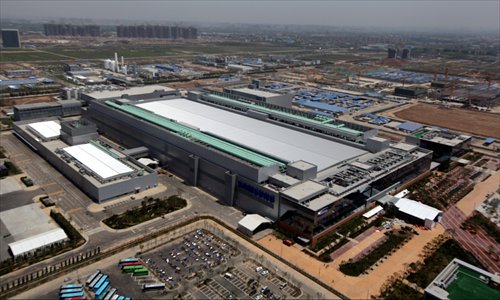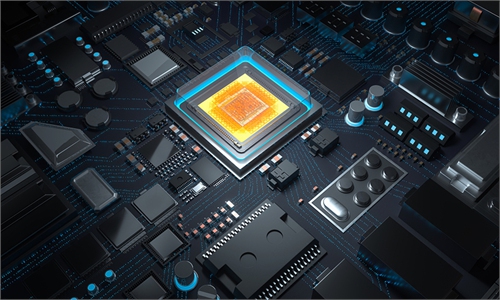China shouldn’t be excluded from world’s most important semiconductor supply chain regions: Chinese Ambassador to S.Korea

The new Samsung China Semiconductor facility in Xi'an, Shaanxi Province Photo: Courtesy of Samsung China Semiconductor
The most important countries and regions in global semiconductor supply chains are not Chip4, but Chip5, as China should not be excluded, being a semiconductor manufacturing powerhouse, Chinese Ambassador to South Korea Xing Haiming said during an interview with South Korea’s Channel A recently.
When asked to comment on the US’ efforts to set up an exclusive chip alliance with its Asian allies including South Korea, Xing said that although the US had grasped cutting-edge semiconductor technologies, China is also a crucial market and a big producer of semiconductor products.
Therefore, the starting point is wrong in setting up a chip alliance excluding China, he said.
"Although we believe that South Korea does not have an intention to target China, we have to remain doubtful whether some other countries do," he noted.
Xing went on to say that whether semiconductor, trade or investment should all be based on market rules and enterprises’ voluntary choices, instead of setting exclusive small circles.
In recent days, the US is mounting efforts to cripple China’s semiconductor industry by roping in its Asian allies. Setting up an exclusive chip alliance is one method, and it is causing widespread speculation as to how South Korea, a market that is deeply integrated with China’s semiconductor supply chains and has largely benefited from it, would respond to the US’ call.
Some signals show that the South Korean side might coordinate with the US to some extent. Recently, Lee Jae-yong, heir of South Korean manufacturing conglomerate Samsung, who was convicted of bribery and embezzlement in 2017, has been granted presidential pardon, according to media reports.
Some Chinese experts noted it’s highly possible that the US has mounted some pressure on South Korea to push for Lee’s pardon, and the return of Lee to Samsung’s leadership should mean that South Korea and the US might have closer cooperation in the semiconductor sector.
Xing said that China and South Korea have formed deeply integrated industrial relations through long-term partnership, and both of them are important links in global semiconductor supply chains.
"We welcome South Korean companies to continue to expand investment in China, and we are happy to see that South Korean companies make success in their operation in China. We hope South Korea will treat relevant problems discreetly out of their own interests," Xing noted.
Global Times



